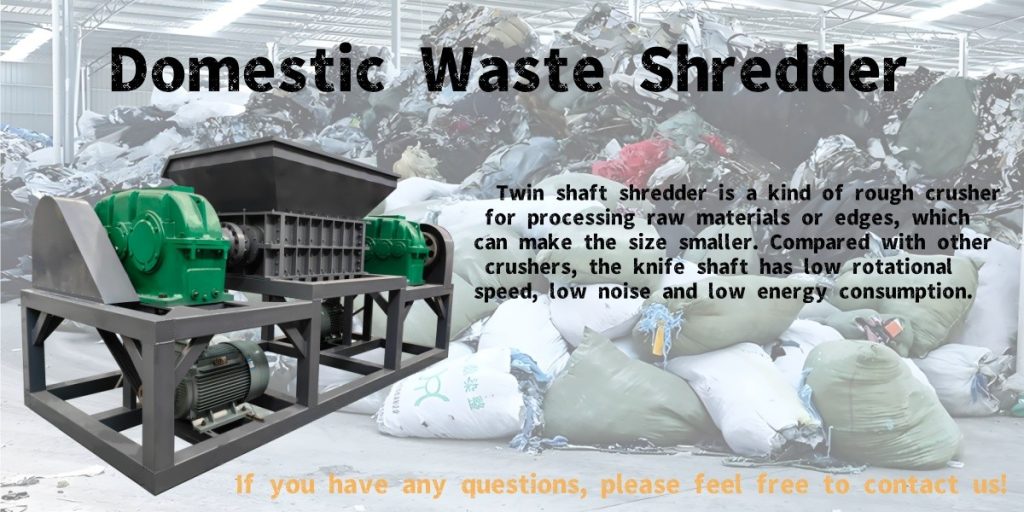Shredder Industry Analysis: Opportunities in the Global Waste Plastic Recycling Boom
In recent years, the global focus on environmental protection has driven the rapid development of the waste plastic recycling industry, and shredders— As core processing equipment—have emerged as a key driver of this growth. With governments across regions tightening regulations on plastic waste disposal (such as the EU’s Circular Economy Action Plan and China’s "Dual Carbon" goals), businesses in waste management, plastic processing, and recycling are increasingly investing in efficient shredding solutions, creating a robust market demand for high-performance shredders.

From a market perspective, the demand for shredders is expanding in both developed and emerging economies. Developed countries like the U.S. and Germany prioritize upgrading existing recycling facilities, favoring shredders with high automation, low energy consumption, and multi-material processing capabilities (e.g., handling plastic toys, PVC pipes, and automotive bumpers). In contrast, emerging markets such as India and Southeast Asian nations are witnessing a surge in demand for cost-effective, easy-to-maintain shredders, driven by the rapid growth of their local waste recycling sectors and rising awareness of plastic pollution.
Technological innovation is another key trend shaping the shredder industry. Modern shredders now integrate advanced features like intelligent control systems (for real-time monitoring of operation status), dust and noise reduction designs (to meet strict environmental standards), and magnetic separation functions (for separating metal from plastic scraps). These upgrades not only improve processing efficiency but also align with global sustainability goals, making high-tech shredders more competitive in the international market.
For foreign trade businesses focusing on shredder products, several opportunities stand out. First, targeting niche segments—such as shredders specialized in children’s toy recycling or large plastic barrel processing—can help differentiate products from competitors. Second, offering customized solutions (e.g., adjusting shredder capacity or adding post-processing modules) to meet regional needs will enhance customer loyalty. Finally, leveraging the growing demand for "green equipment" in international trade and highlighting the environmental benefits of shredders (e.g., reducing landfill waste and promoting resource reuse) can attract more buyers.

In conclusion, as the global waste plastic recycling industry continues to expand, shredders will remain a critical piece of equipment. Foreign trade enterprises that grasp market trends, prioritize technological upgrading, and tailor products to regional demands are well-positioned to capture significant growth opportunities in this thriving sector.



